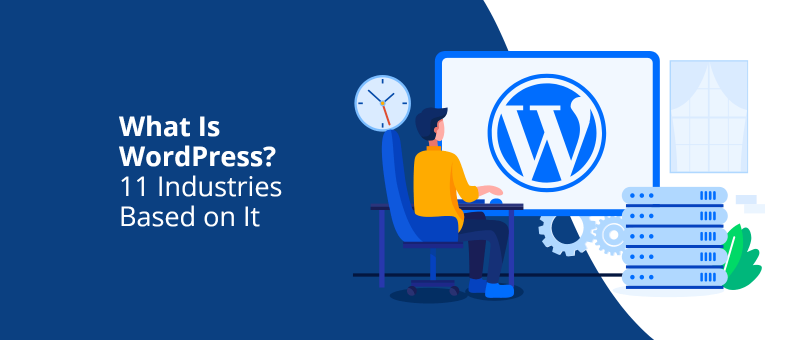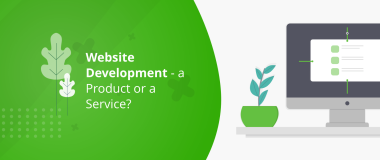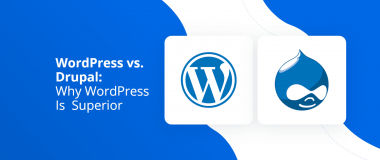What is WordPress?
WordPress is the most popular content management system (CMS) that powers 63% of all websites with a CMS, which equals 36% of all websites on the Internet. As the leading CMS, WordPress enables a whole ecosystem of business opportunities.
You can create different types of websites like eCommerce shops, business websites, publishers and different high-scale WordPress platforms generating millions of page views.
WordPress is an open-source software which means that its code is visible and accessible. It can be downloaded and used by everyone. Behind WordPress is a big community of volunteers, who contribute to its development and maintenance and introduce new changes to the core to make it better.
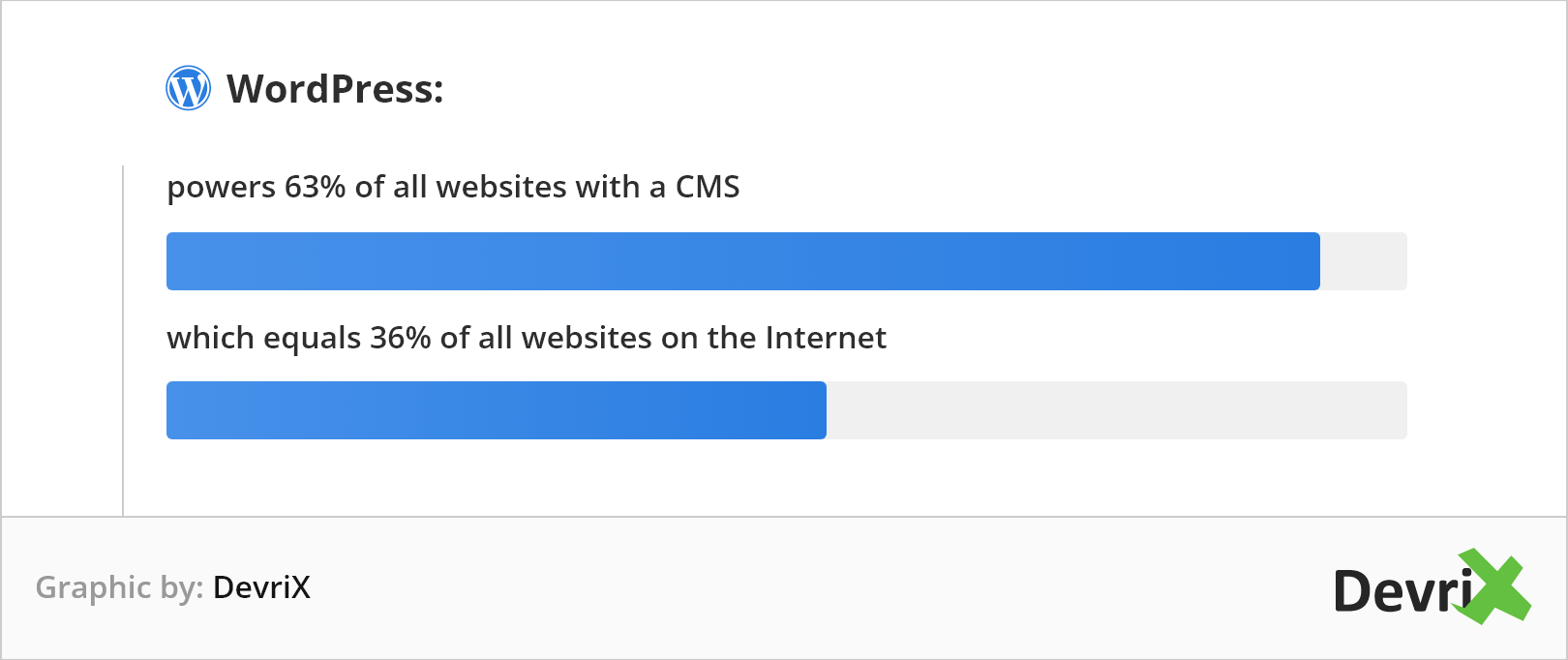
What’s the Difference Between WordPress.com and WordPress.org?
Because WordPress started as a blogging platform, there is a common confusion between WordPress.com and WordPress.org, so let’s explain briefly the difference between both domains.
WordPress.com is a hosted version of the open-source software WordPress and it’s owned by Automattic. It’s usually used by bloggers who blog for a hobby. If you want to create your business website on WordPress.com you are actually very limited. You can’t upload privately developed plugins nor themes and you have to choose between the ones provided by the platform.
In terms of placing ads and monetization, you cannot profit from your website, as you are not allowed to place adverts. Although there are different plans available when upgrading you will still be missing out on lots of possibilities compared to WordPress.org.
WordPress.org is the open-source CMS where all the magic happens. You can download the software completely for free and use it as you want. You have the freedom to build any type of website. You can choose where to host it and upgrade it with your own lines of code. You could develop plugins and themes or you choose from thousands of the WordPress repository on WordPress.org. You can even place ads and make money from your website.
WordPress is forever free, and there are unlimited possibilities for businesses to make huge profits from it.
In this article, we are going to list different services and business models that wouldn’t be possible without WordPress.
Related: WordPress Publishing Explained: Key Revenue Growth Techniques
Eleven Industries Based on WordPress
Have you ever wondered which business models would not exist without WordPress? Here is a quick list of options:
1. Build All Types of Websites
WordPress holds a 61.8% market share. Since the CMS is free and easy to use you can start building your website right away. And developers are able to build high-scale and powerful websites.
What types of websites can you build on WordPress?
- eCommerce platform and online shops
- Digital media publishers
- Corporate and brand websites
- Blogs
- SaaS solutions
- Portfolio websites
- Multilingual websites
- Online communities
- Knowledge databases or Wiki websites
- Podcasting websites
- Non-profit websites
2. Building and Selling WordPress Themes
There is a huge amount of themes you can download for free from WordPress.org. However, there are also companies who build and sell WordPress themes.
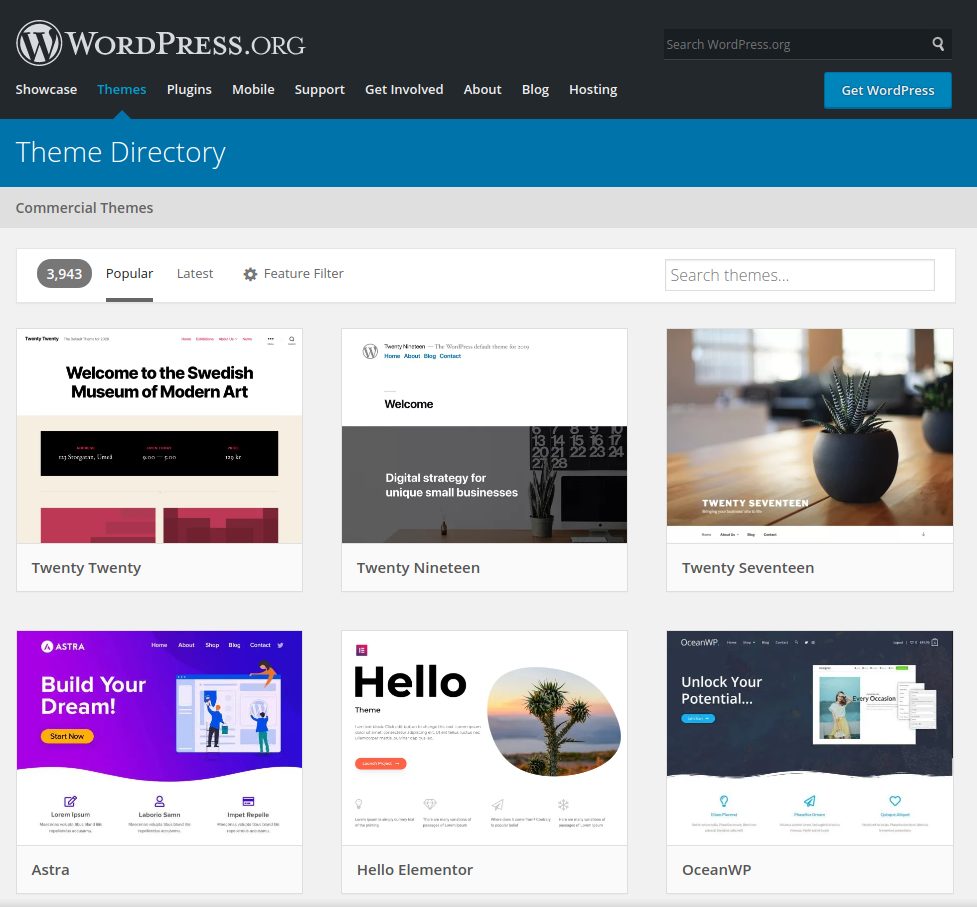
Source: WordPress.org
For example, Envato owns Themeforest which is one of the biggest marketplaces for themes, plugins, hosting, etc. for popular CMS platforms. Currently, there are 48,461 WordPress themes and website templates available. One WordPress theme has earned over 12 million dollars in sales according to Digital.com.
Research from 2016 shows that WordPress themes are diving 80.5% of the total revenue of the company, even though only 28% of the themes are by WordPress. Which shows popularity and trust in WordPress themes.
Related: What Goes into Building a Custom WordPress Theme?
3. Building and Selling WordPress Plugins
The situation with WordPress plugins is similar. There are 55,891 plugins available for free on WordPress.org. This is a list of DevriX free plugins that can be found on WordPress.org.
There are companies that develop and sell WordPress plugins and themes. Plugins provide websites with all kinds of functionalities. so the sky’s the limit as to what could be built. As there are hundreds of plugins, let’s mention the most popular types:
- Security plugins
- Contact forms
- Caching
- SEO plugins
- Google Analytics integrations
- Conversion and optimization plugins
- Backup plugins
- Improve speed plugins
- Giveaway plugins
- Multilingual plugins
- Plugins for WooCommerce
Related article: WordPress Plugin Best Practices: Why Less Is More
4. Run a WordPress Development and Design Agency
It’s easy to launch your website on WordPress, but if you need to build your business and create a high-scale platform you need partners who can handle all your technical needs.
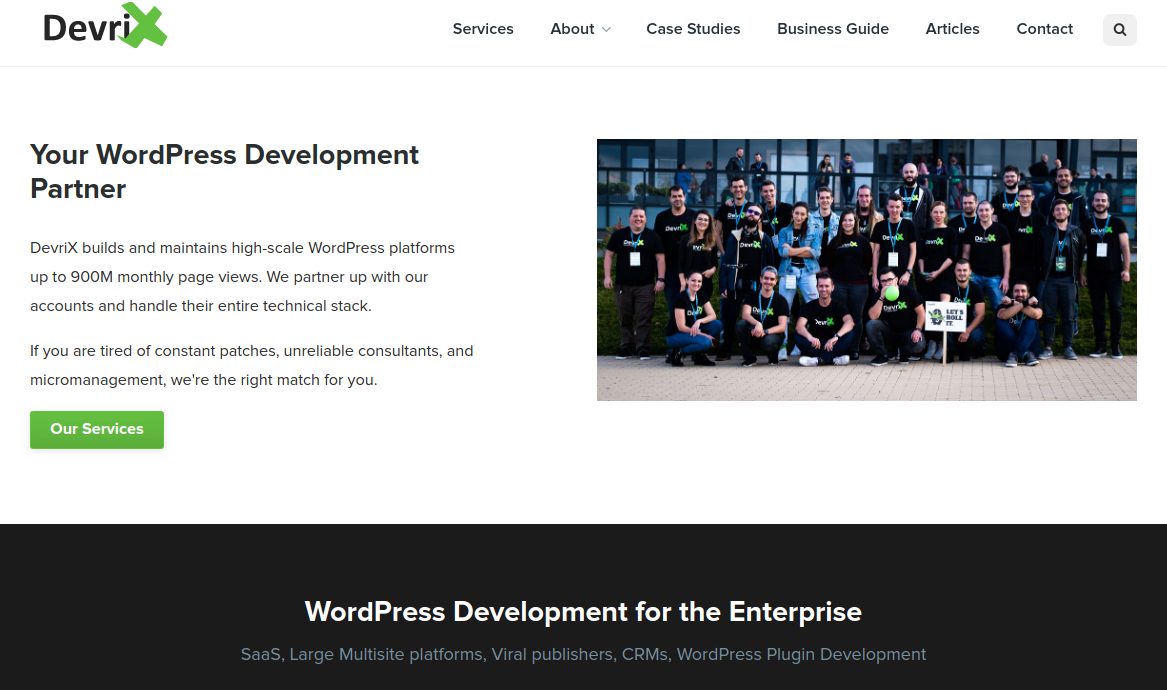
Source: DevriX
WordPress development agencies like DevriX, provide the following services:
- Technical WordPress development – building large platforms, SaaS solutions, media websites, multisite networks, custom WordPress plugin development
- Design and front-end solutions
- Server and website maintenance
- Business advise and research
5. Provide WordPress Hosting Services
When building your website on WordPress.org you’ll need proper hosting where you can be sure your data is stored and protected perfectly. There are companies specialized in WordPress hosting such as:
There are three hosting providers officially recommended by WordPress:
Related: The Basic Guide to Enterprise WordPress Hosting
6. Be a Freelancer, Who Creates Websites on WordPress

As WordPress is so popular there are millions of freelancers who offer their knowledge and skills as a freelancer.
There are many platforms where you can hire different types of WordPress specialists and developers according to your needs.
Some famous platforms for WordPress specialists are:
- Upwork
- Codeable
- Jobs.WordPress.net which is the official WordPress job platform
- Toptal
- WPhired
On these platforms there are all kinds of registered WordPress specialists and developers that you can hire full-time or part-time:
- Web Developers – fond-end and back-end
- Application and user experience developer
- Graphic designers
- Quality assurance
- Technical support
- Themes and Plugins developers
- Content and copywriter, editor
7. Be a Blogger on WordPress.com
Blogging on WordPress.com is also a big part of the whole WordPress ecosystem. We all remember when WordPress started out as a blog and grew into the most popular CMS where you could build the website you wanted.
A few statistics published by WordPress.com show that 409 million people view more than 20 billion blog pages each month.
Apart from blogs, there are big companies who publish on WordPress.com such as TED, Spotify, TechCrunch. Also, the platform hosts blogs, written in over 120 languages, proving the worldwide popularity, richness of languages and topics.
8. Organize Community Events
WordPress has powerful, active and passionate community. Without all these volunteers and WordPress enthusiasts, the CMS probably wouldn’t exist the way we know it nowadays. Up to now, there have been more than 1084 WordCamps all over the world, held in 76 cities, 65 countries and 6 continents.
When speaking about community events there are two aspects – organizers and speakers.
When talking about events:
- WordCamps are the most popular events for WordPress users. Usually, they happen on a weekend where one of the days is dedicated to the contribution to WordPress. While the second day is for presentations, sharing best practices, news and effective ways to use the platform.If you want to dive into more details about DevriX’s experience during WordCamps, here is a summary from the last WordCamp in November 2019.
- Local meetups are organized by volunteers and again, users exchange ideas, discuss certain topics or organize local contributor days.
- Business conferences such as Pressnomics, which is a private event for influential and successful WordPress entrepreneurs.
Related: The Most Challenging WordPress Project I’ve Worked on in 2019
9. Organize WordPress Courses, Publish Tutorials and Teach
Several educational websites and platforms provide courses where you have the possibility to learn how to build WordPress websites. You can choose between paid or free courses. Those courses are mostly for beginners since they don’t generally touch on programming languages.
Yoast is pretty well-known in the WordPress community for its SEO plugins and SEO blog. The platform also provides WordPress courses where you can choose between free and paid versions.
Other platforms offering courses are Lynda, Udemy, WP101, and others.
Also, there are a few blogs that share useful tutorials, how-to guides, news and everything related to WordPress such as WPBeginner and WordPress Tavern. If you want to catch up with the latest in WordPress those two blogs are the place to go.
There are also offline courses, seminars and lectures where people can learn programming or WordPress basics. In Bulgaria, a private Software University is famous for its programming courses where developers from DevriX team have led seminars and lectures.
Check also DevriX’s CEO Mario Peshev’s videos and training portfolio plus videos of WordCamp lectures.
10. Provide Digital Marketing Services and Create Content
Once you’ve built a website you need to start publishing your content. To do that properly and to be sure your website ranks higher in search engines you need a whole inbound marketing strategy including SEO optimization, content writing, social media marketing, and email marketing.
Most of the companies that provide WordPress development services also have a marketing department and offer marketing strategies and creative solutions to their clients.
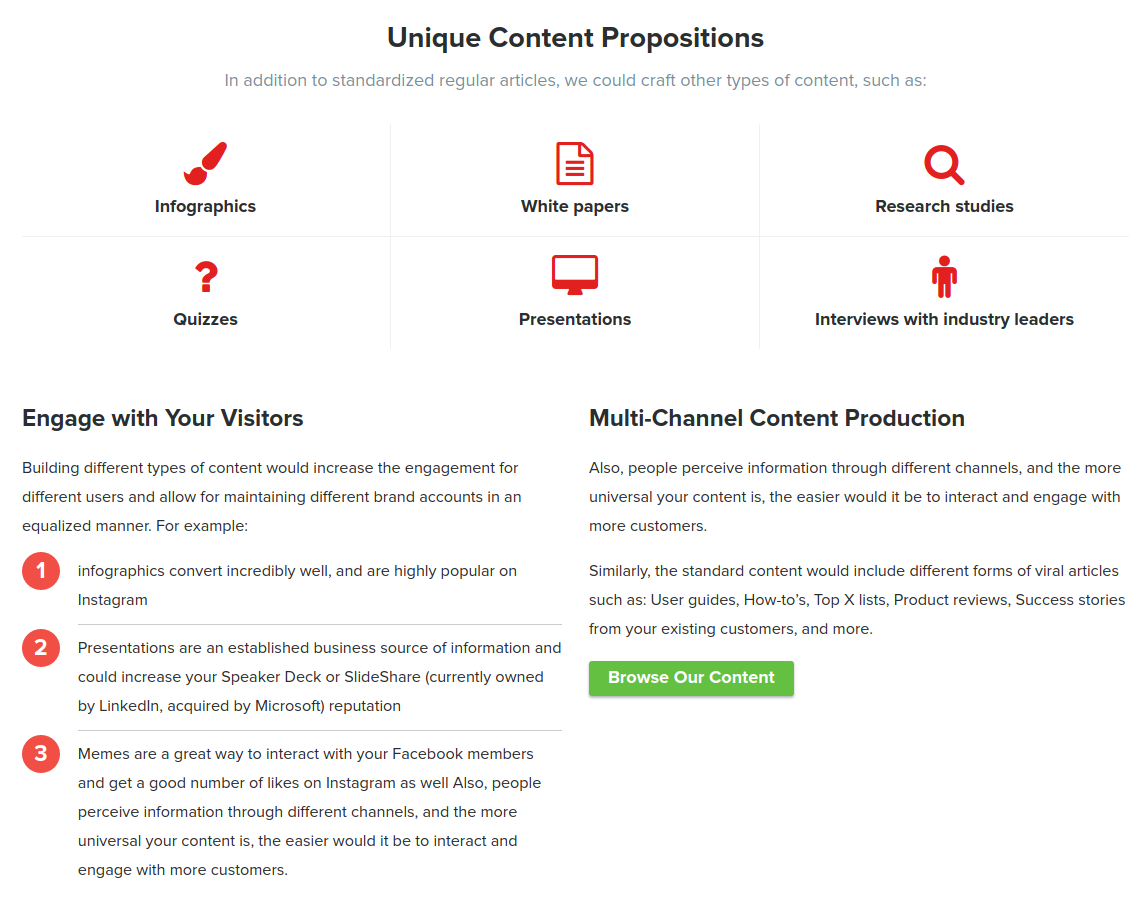
Source: DevriX
11. WordPress Business Consulting
So far we’ve discussed businesses that exist because of WordPress – companies that build websites, sell plugins and themes, provide hosting services and create marketing solutions.
However, to make sure your business will grow and that you are on the right way to success, sometimes you need to hire a business consultant who understands both the technical side of WordPress and the business world.
Business advisors can help companies with planning and setting up goals, technological solutions, implementing marketing and PR strategies, optimizing workflows and more.
Contribution: The Way to Give Back to WordPress
WordPress contribution doesn’t only consist of working on the core alone. There are several other ways to contribute like developing or reviewing free themes and plugins, translating, designing, providing support, organizing conferences (WordCamps), etc.
At DevriX, we organize, on a regular basis, Contributor days where we work on development and translation tasks as regulated on make.WordPress.org. The developers usually submit patches and help with support, while the other teams work on translation.
Wrapping Up
It doesn’t come as a surprise that WordPress is the fastest growing CMS, with around 500+ websites being built daily and that it also dominates Google’s SERP with 2.28 billion results.
Since its launch in 2003 as a blogging platform, WordPress has grown into a real ecosystem. In this article, we’ve focused on industries based on WordPress. Even though the WordPress CMS itself is free and anyone can download it, choose a theme and install plugins, there are businesses who make their money solely because of the platform.
One amazing thing is that it is backed by a wonderful community with passionate WordPress advocates who love dedicating their time in making each new version of the CMS better.
